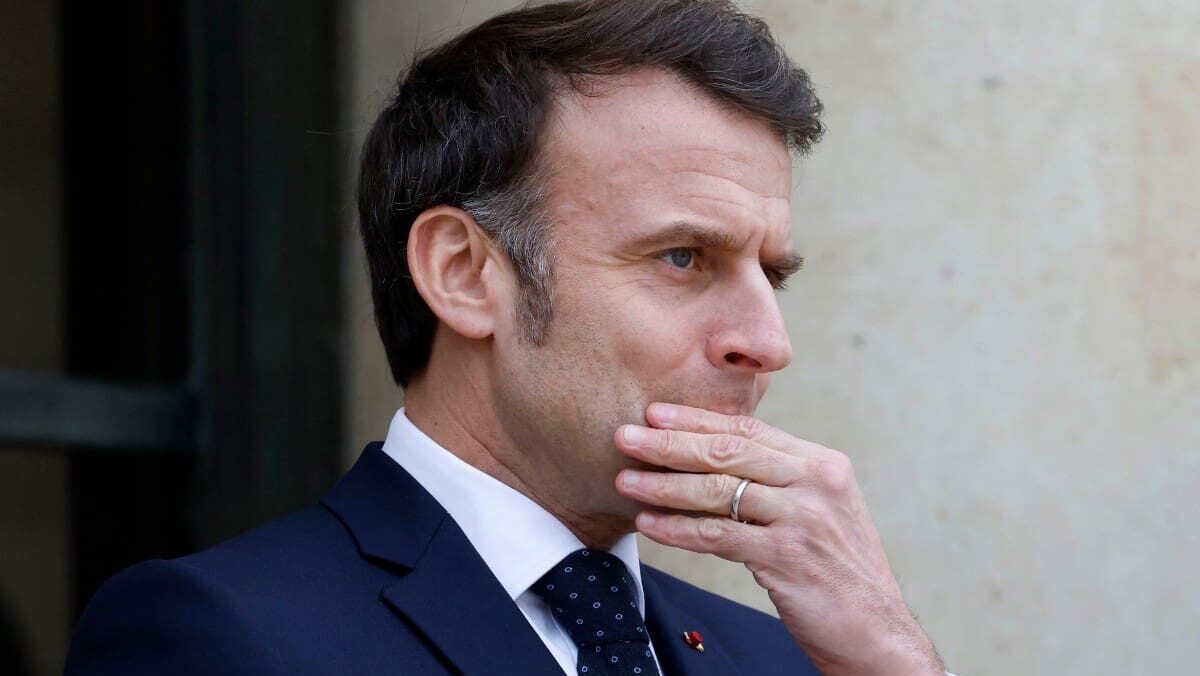
France’s President Emmanuel Macron gestures as he waits for Romania’s interim President for talks at the Elysee presidential Palace in Paris on February 19, 2025, one day after a meeting with seven European countries, focused on Ukraine.
Photo: Ludovic MARIN / AFP
Deprived of power and majority for many months, President Macron is trying to rebuild his image and regain his political legitimacy by taking centre stage on international issues, but his voice is struggling to break through.
After spending the start of the week in meetings with a selection of European heads of state—with a noisy media display but inconclusive political results—the French president focused on the national scene on Thursday, February 20th, to polish France’s position on the Ukrainian question, while shut out from the peace talks between Donald Trump and Vladimir Putin. He dares to hope that the Ukrainian cause brings a little unanimity to a fractured French opinion.
In the morning, the president gathered around him the representatives of the main political parties from the National Assembly in a format already tried and tested in times of crisis. These meetings, which have no institutional foundation, are a way for him to regain control and give the impression that he still has a political role to play. The political parties are wary of them, as they can appear to be a way of bypassing Parliament.
Allies of the presidential camp praised his responsible attitude, his “lucidity” and his seriousness.
Participants in the meeting, from the far Left to the Rassemblement National (RN), agreed on the need for France to make its voice heard in the new international context, and on the need to include Ukraine in negotiations on a potential ceasefire. Beyond this minimalist consensus, there were many differences of opinion, particularly on the role to be given to NATO and on the relations to be maintained with Trump’s U.S. “There will be no ceasefire agreement without Ukraine,” Macron insisted, while conceding that Trump was “unpredictable.”
The Left was concerned about the president’s innuendo, which suggested that it might be necessary to prepare to continue supporting Ukraine and to be militarily close to it if Ukraine wanted to continue the war. However, Macron stated in the French regional press that France was not preparing to send combatants but could consider sending experts or troops to non-conflict zones. The RN reiterated the need for dialogue with Trump, while the party’s president, Bardella, is travelling to Washington.
A debate, without a vote, is due to take place in Parliament at the beginning of March on these issues.
After the meeting, the French president staged an online discussion with internet users in the evening, broadcast live from his official social media accounts, to “answer the questions of the French” on Ukraine and security in Europe. The whole thing lasted just over an hour.
The staging was carefully considered: the head of state appeared sitting at his desk, cluttered with numerous files, showing maps of Ukraine—but with maps, unfortunately for him, arranged upside down, as noted by the newspaper Le Monde.
He explained that he wanted to “sound the alarm” in the face of “the threat that Russia represents for Europe and for France”—an armed Russia that would be “unstoppable,” in his words.
Since the dissolution of the National Assembly in June 2024, Macron’s political impotence has become apparent, leading him to invest to compensate in his favourite field, the international arena. But here too, his impotence is quite obvious. The French president plans to go to Washington early next week to try to regain control and ward off fate—that of Ukraine, or his own?
